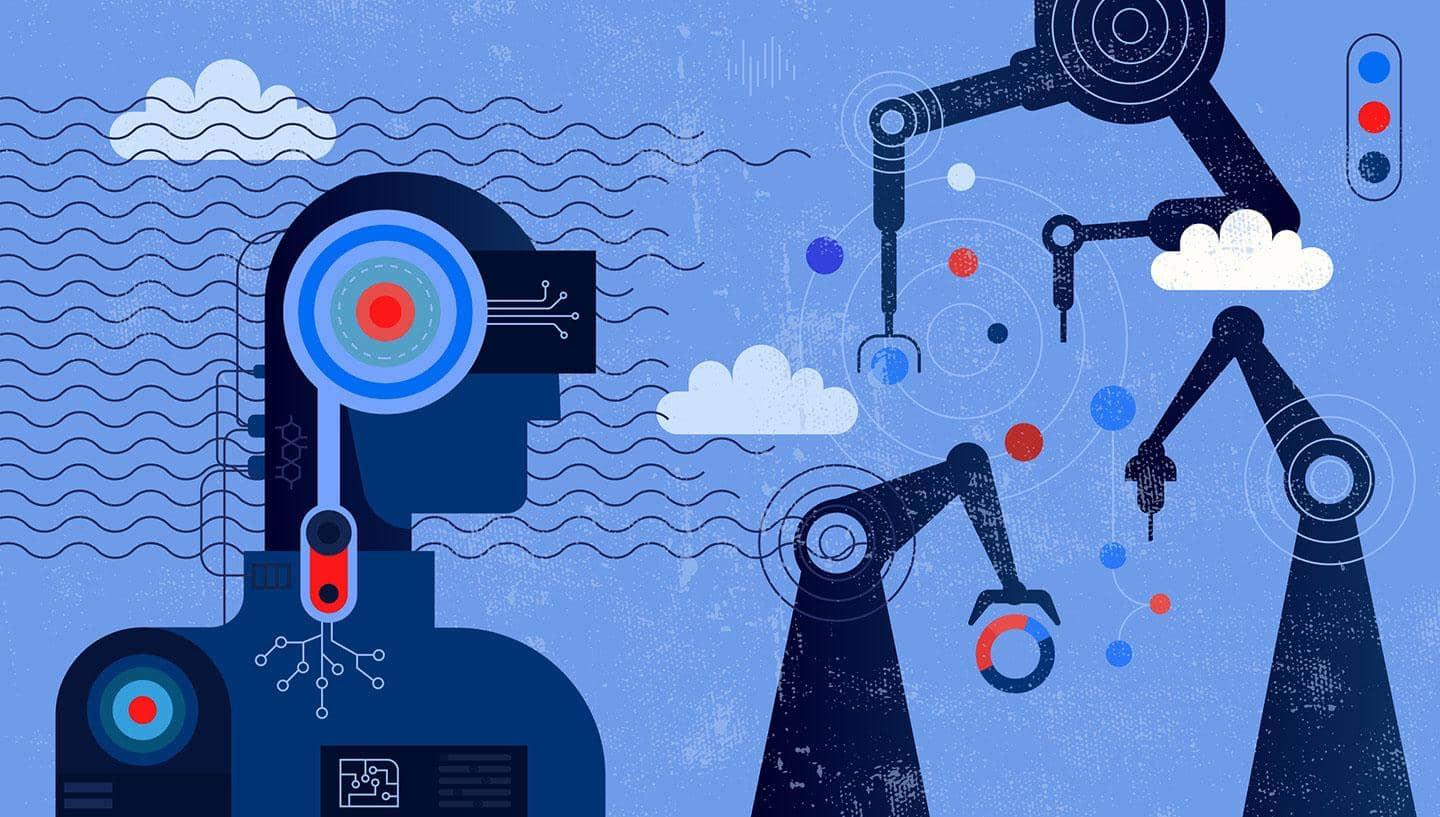
Innovation
New tech, transferable skills and the future of talent
According to the World Economic Forum, the time spent by humans and machines on current work tasks will be equal by 2025. How will this impact the jobs of the future? We talk to Barclays’ Gillian Gray and Benjamin Storey about how new tech will affect careers – and the skills employers will be looking for.
“New technologies like artificial intelligence, augmented reality and the Internet of Things are disrupting business models, increasing automation, and really changing the requirement for some of our workplace skills,” says Gillian Gray, Head of Marketing Strategic Projects at Barclays. But, she adds, disruptions to the ways we work aren’t anything new. “Every industrial revolution has meant disruption. Old industries are being transformed or disappearing and new ones are being created.”
What could these new sectors and jobs look like? There’s no doubt that tech is playing an ever-growing role – both in terms of the way people work and the industries they work for. While 10 years ago, the world’s largest companies largely focused on commodities such as oil and gas, today tech firms dominate the Financial Times rankings. This shift impacts the types of jobs available.

Gillian Gray says a mindset of continuous learning is crucial for employees.
We don’t yet know what capabilities some of the technology being developed today will harness, so that's why it's important to develop a mindset of continuous learning
Head of Marketing Strategic Projects at Barclays
Continuous and adaptive learning
“We only have to look at jobs that are really familiar to us now, like social media managers, app developers, big data analysts ¬– 10 years ago they were just beginning to exist,” Gray says. “We don’t yet know what capabilities some of the technology being developed today will harness, so that's why it's important to develop a mindset of continuous learning – but also understanding what's happening with tech and adapting at the same time.”
Gray points to her own career to demonstrate why this will be crucial for employees across a range of industries.
“When I first entered the workplace, things like big data and platform businesses didn't exist,” she says. “I made a decision to go back to school myself and did a master's in innovation. It really opened my eyes to the speed at which change is happening and how we all need to be prepared for that. A lot of us are going to have to retrain, potentially several times throughout our careers.”
This is something employers are increasingly focused on. Benjamin Storey, Key Clients, Funding Solutions and Business Insights Lead at Barclays Business Banking, says that working at Eagle Labs, the bank’s network of coworking spaces, has seen him collaborate with startups that are “building and developing innovative technologies which are improving quality of life – or even creating jobs and sectors that we haven't seen before”.
And within this context, “attracting and retaining a skilled and talented workforce is always going to be one of the biggest challenges that businesses face, whether you're a large corporate or an early-stage business,” he explains. “Investing in learning and development opportunities for employees is now more crucial than ever, if organisations also want to stay relevant.”
The human touch
The increasing power of technology has prompted concern that it could make many existing roles redundant.
“Machines will certainly take some jobs, but new roles will be created,” Gray says. “What we don't know yet is the volume and the speed, and whether they will be equal. We also need to be mindful that this will impact people in different ways – to some it's great news, because technology will augment their roles and take away some of the routine work, so they’ll actually have a greater job satisfaction. For others, technology is going to take away some of their role, meaning that they’ll perhaps end up doing less skilled work, or, worse still, have no work at all.”
As a result, reskilling will be key for employees who want to stay relevant. However, she adds, “it isn't just the technical skills that people will need, as machines take on more tasks – it's actually some of the more uniquely human skills such as complex problem solving, resilience and creativity. These are all really transferable skills that we can take on as we progress in our working lives.”
During COVID colleagues had to learn resilience, about working flexibly and looking after their own wellbeing. We cannot put enough emphasis on these skills
Key Clients, Funding Solutions and Business Insights Lead at Barclays Business Banking

Benjamin Storey says the coronavirus pandemic has highlighted the importance of soft skills.
The rise of portfolio careers
This need to be adaptable is also being reflected in the rise of the ‘portfolio career’. In recent years, traditional paths that saw employees spend entire careers in the same profession – and even in the same organisation – have been replaced by side hustles and flexible career paths.
This is a trend that’s likely to stick, says Storey, so having transferable skills is vital: “As time goes on, we'll see more very highly skilled individuals who have the ability to commit one or two days to a firm from their own side hustle, or work for a variety of businesses. I think the ability to adapt and have skills that transfer across to a multitude of jobs is the key in the inevitable shift we are seeing in the workplace.”
Post-pandemic ways of working
COVID-19 has accelerated existing trends, increasing reliance on digital ways of working – according to data from the World Economic Forum, 84% of employers are likely to digitalise working processes and increase remote work.
Storey reiterates that the pandemic – which forced employees across the world to quickly adapt to the ‘new normal’ – has highlighted how important soft skills are: “During COVID colleagues had to learn resilience, about working flexibly and looking after their own wellbeing. We cannot put enough emphasis on these skills, how transferable they are between different sectors and different types of roles. Focusing on those going forward, as well as more specialist skills, will be key for many people as they continue to build their careers.”